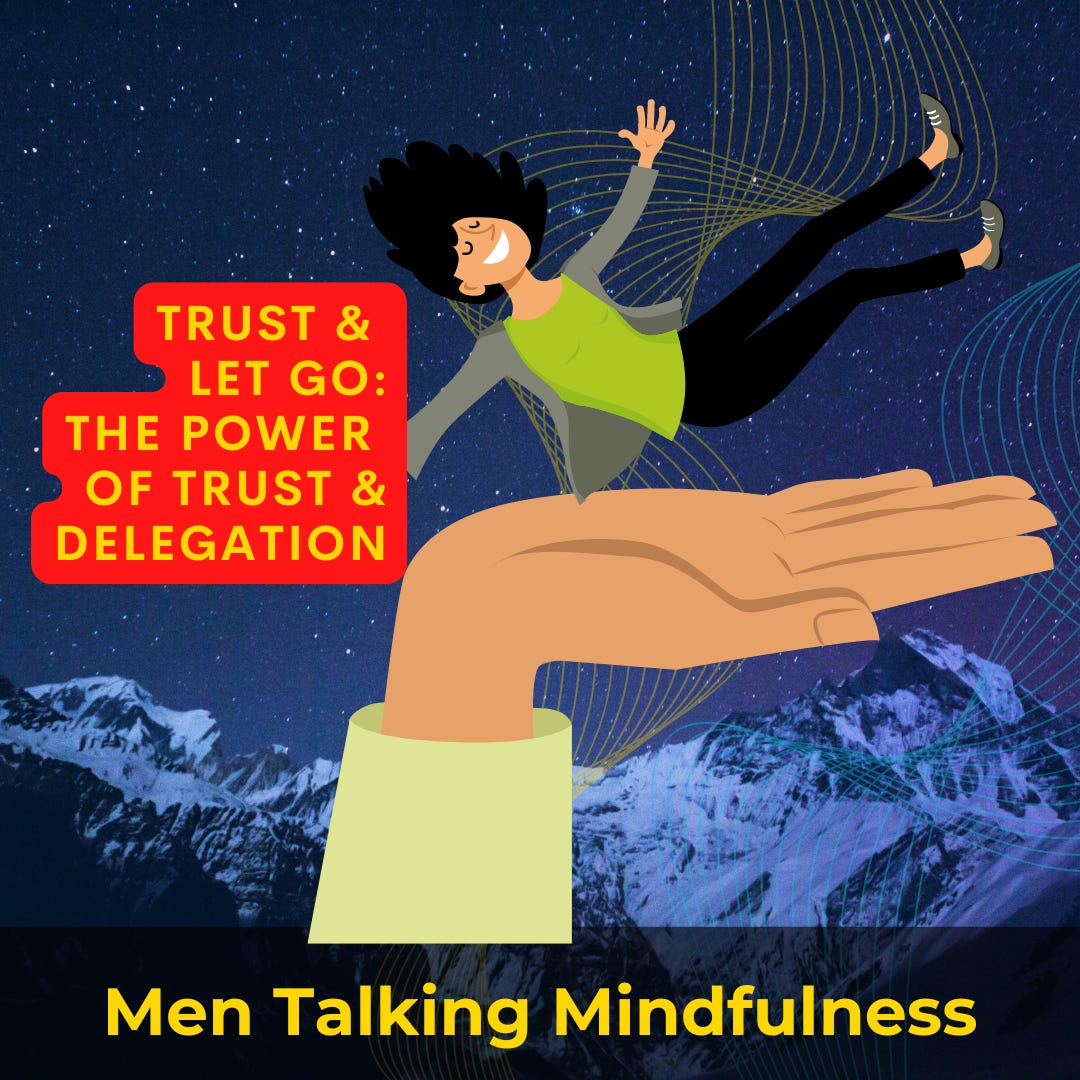Welcome Back!
Trust is the bedrock of every relationship, whether at home or in the workplace, and most importantly with yourself. So we devoted an entire episode about trust and broke down for you how to build it, maintain it, and what to do when it’s broken.
Here are top 4 takeaways:
1. Self-Trust is Key
It always start with the self. Jon emphasized that “self-trust comes with experience.” It’s about knowing your strengths and weaknesses and having faith in your decisions.
See when you trust yourself, you’re more likely to challenge yourself, take risks and step outside your comfort zone. This self-awareness not only boosts your confidence but also sets the stage for trusting others too.
2. Consistency Builds Trust
Consistency is a key ingredient to building trust. Follow these two core principles and watch trust grow: follow through on your commitments and keep your word.
When you consistently live by these principles you will create a solid foundation for trust to flourish. If you are struggling with either of these what needs to change?
Maybe you have trouble saying “no” to people and therefore you’re over committing? Know that saying “no” is sign for respect for everyone involved. If someone’s feeling hurt by you saying “no” or gets offended then I suggest taking a step back. Maybe you are trying to develop trust with the wrong person…?
If you are not living by your word then you have a lot of work to do and that is a whole different topic for a whole other time. To help you with this, we suggest reading “The Four Agreements” by Don Miguel Ruiz.
3. Navigating Betrayal
Betrayal (be·tray·al) is defined as: the act of being disloyal or treacherous to someone who trusts you. It often involves breaking a promise, revealing secrets, or acting against someone's interests.
Trust is something cherished and is held in the highest regard in all relationships. That is why betrayal is painful and cuts so deep.
Jon shared a great personal story about how a seemingly trivial promise to his ex-wife led to a significant breach of trust. “It was just a book” Jon thought. His story was a stark reminder of how fragile trust can be. Even a seemingly small action can huge consequences.
Betrayal leads to feelings of hurt and insecurity. To regain that trust it’s essential to communicate openly and honestly. It will take time too. If you find yourself in a situation where trust has been compromised, take the time to address it head-on, live by the two aforementioned core principles of trust and patiently work towards healing the divide.
4. Delegation as a Trust Exercise
Finally, we wrapped up by discussing delegation and how it ties back to trust. Again, it start with the self. If you don’t trust your own judgment, it’s almost impossible to trust others.
Delegation is so much more than just about passing off a task. It’s a relationship based on trust. Effective delegation works best when you empower others to step up. In the workplace, when you trust your team you create an environment where everyone can thrive. It’s not micromanaging, trying to control everything or being overly nitpicky.
As a leader, your job is to clearly communicate the goals and expectations, step back, be patient and allow them to shine. Delegationing in this way makes all of your lives a whole lot easier!
So what do you need to do be more trustworthy to yourself and others and what kind of leader do you want to be?
To learn more about trust and hear more about our experiences, check out the full episode of Men Talking Mindfulness.
May the Mindfulness be with you! 🤩
Will & Jon









